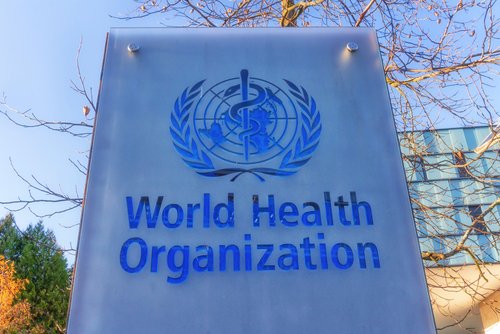Belgium (Brussels Morning Newspaper), The World Health Organization (WHO) this month released a statement classifying aspartame, a non-sugar, low-calorie sweetener, as “possibly carcinogenic to humans.”
The announcement has rekindled the decades-long debate on the health effects of this popular sweetener.
According to the WHO’s International Agency for Research on Cancer (IARC), the classification comes from “evidence” linking aspartame to cancer, particularly a type of liver cancer. Aspartame, a common ingredient in diet sodas and other sugar-free products, was assigned to Group 2B – “possibly carcinogenic to humans” in the IARC’s five-level system of assessing carcinogenic risks.
However,in the same announcement, the WHO’s Joint Expert Committee on Food Additives (JECFA) concluded that the association between aspartame consumption and cancer in humans is not convincing. They maintained the acceptable daily intake (ADI) of aspartame at 40 milligrams per kilogram of body weight.
Despite the classification by IARC, numerous industry experts and regulatory bodies, including the U.S. Food and Drug Administration (FDA), European Food Safety Authority (EFSA) and Health Canada have reportedly questioned the assessment. The FDA issued a statement highlighting “significant shortcomings” in the studies relied upon by the IARC and restated its position that aspartame remains safe for consumption at current levels.
There remain embedded differences between the European and US approach. The former is famed for its adoption of the “precautionary principle”, whereby any identified hazard could face regulation or prohibition regardless of whether it presents any concrete risk in the real world. In the US, and most of the developed world, a balance of scientific evidence and assessment of real-world applicability is used to manage the risk of any particular substance. In the case of Aspartame, even the hyper-cautious European Union approach finds it to be safe.
It is unclear to experts what has prompted the classification. Prof Andy Smith of Cambridge University writes that “These are not strong opinions. It is not clear how aspartame could cause cancer since it is fully broken down to natural molecules before absorption”.
Prof. Kevin McConway, Professor of Applied Statistics at the Open University, reportedly argued that the IARC’s classification is being widely misunderstood. “IARC classifications are based on hazard, not risk”.
A drug or food could be classified as Group 1 – “carcinogenic to humans” – without there being any real risk of cancer in a realistic scenario. This means that half of all substances analysed by the IARC end up being classified as “possibly carcinogenic to humans”, or worse. Indeed, coffee was for many years classified as such, until stronger evidence emerged.
It is reported that Paul Pharoah, professor of Cancer Epidemiology, noted further that “Other examples of classified as Group 2B are extract of aloe vera, diesel oil, caffeic acid found in tea and coffee. Group 2B is a very conservative classification in that almost any evidence of carcinogenicity, however flawed, will put a chemical in that category or above.”
McConway reportedly concludes that “there is a risk of public confusion with the simultaneous statements, with IARC saying that there could, possibly, be a cancer hazard from aspartame under some, undefined, circumstances, and JECFA saying that they are not going to change their maximum acceptable daily intake, which is based on risk assessment. But in fact these are not inconsistent, because they are talking about different things.”
It is said that these announcements and media reporting on them possibly risk inducing panic and even worsening public health for what, it is argued, is essentially a non-event. Diet and sugar-free drinks massively cut calorie intake reducing the risk of obesity compared to sugary alternatives. This, it is suggested, also means less sugars to feed harmful mouth bacteria that can cause tooth decay and gum disease. It would also deprive consumers of sugar-free gum, known for its mental health benefits and also its ability to induce saliva production which cuts down on the risk of acidity and erosion of tooth enamel.
It is argued that maligning the sweetener aspartame risks doing more damage than the suggested risk of cancer ever could. Prof Sir David Spiegelhalter, also of Cambridge University, reportedly said that “These IARC reports are getting a bit farcical.”
“As they have said for 40 years, average people are safe to drink up to 14 cans of diet drink a day, which is about an old gallon – about half a large bucketful. And even this ‘acceptable daily intake’ has a large built-in safety factor.”
Ultimately, it is argued that consumers should make informed decisions, bearing in mind that the threat of obesity and oral health problems from consuming sugar-laden alternatives can pose far greater health risks than aspartame has been (mis)represented to.
As consumers continue to navigate through the evolving landscape of health and scientific research, it is argued they should be able to rely on clear communication from health organizations and thorough accurate media reporting.




